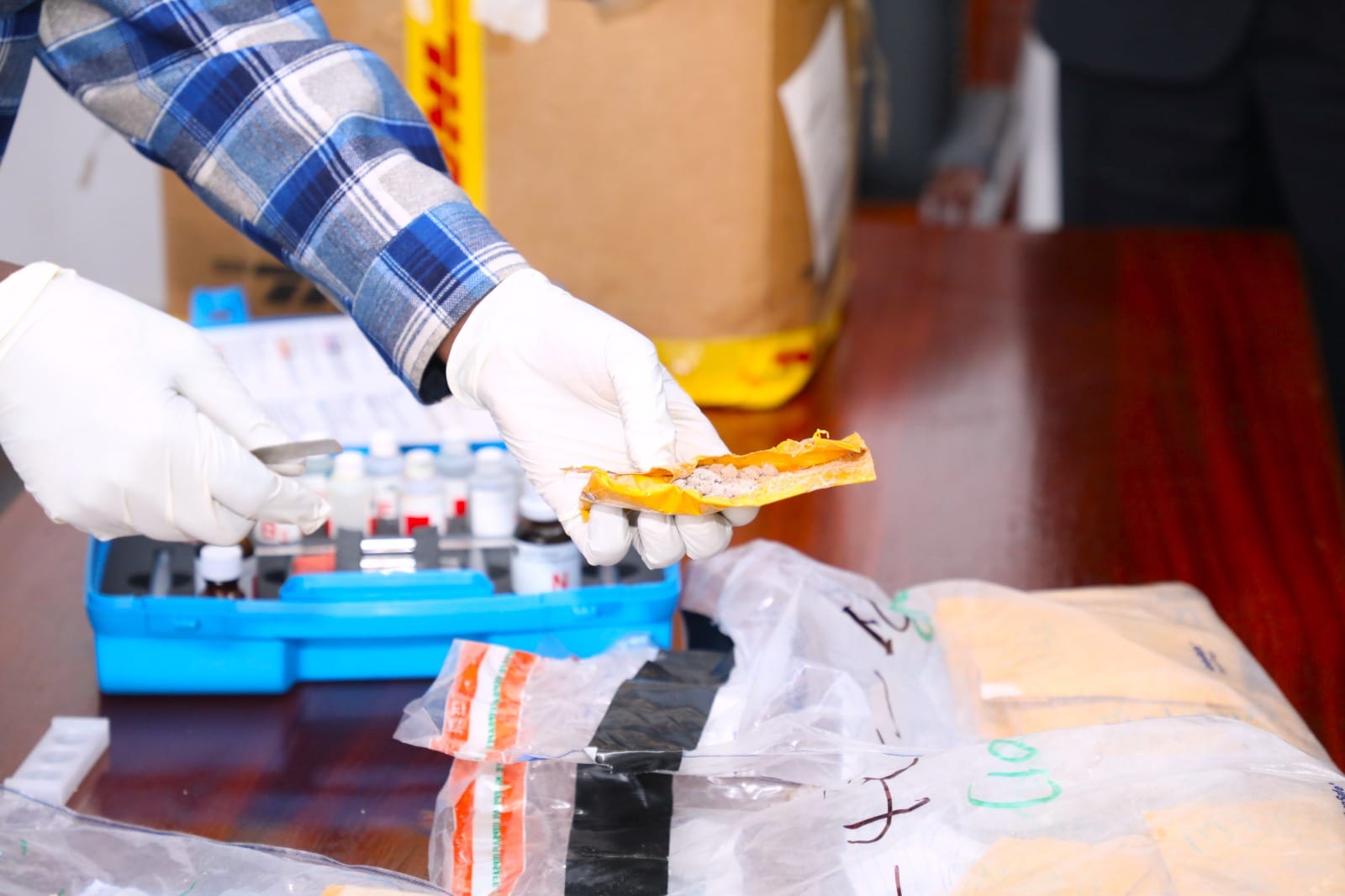

The Directorate of Criminal Investigations (DCI), through its Anti-Narcotics Unit (ANU), has formally handed over a consignment of heroin seized at the JKIA to Tanzanian authorities.
The handover followed a Mutual Legal Assistance (MLA) request by the Tanzanian government in relation to ongoing criminal proceedings against suspects Mohammed Yusuph Mzimba and Enrique Dos Santos.
The suspicious consignment, originating from Tanzania and bound for the Netherlands, was intercepted at JKIA on November 9, 2020.
Upon inspection, security officers recovered 56 packages disguised as hair braids.
Laboratory analysis later confirmed the packages contained 1,712.34 grams of heroin, a prohibited substance under Kenya’s Narcotic Drugs and Psychotropic Substances (Control) Act No. 4 of 1994.
Speaking during the handover ceremony on Wednesday, the ANU Director reaffirmed the DCI’s commitment to strengthening cross-border partnerships in the war against drugs.
He warned that narcotics destroy communities and fuel organised crime, threatening economic stability and security across the region.
Interpol’s National Central Bureau (NCB) Director Ibrahim Jillo echoed the sentiments, noting that criminal syndicates exploit jurisdictional loopholes and bureaucratic delays to thrive.
“This calls for strong, consistent and structured collaborations,” he said.
DCI’s Director of Legal Services Augustine Kitonyi called for enhanced cooperation across all areas of transnational crime, not just narcotics enforcement.
Representing Tanzania, Isaac Isanzu from the Tanzanian High Commission lauded the DCI’s vigilance and professionalism, describing the handover as a demonstration of the deepening bilateral ties in fighting drug trafficking.
Also present during the event at DCI headquarters were Tanzania’s Anti-Narcotics Director, Israel Makongo, and a representative of the Office of the Director of Public Prosecutions (ODPP) Elisante Masaki.
The ANU emphasised that the seizure and handover highlight the importance of intelligence sharing, tighter border controls, and regional solidarity in dismantling the international narcotics network.
It underscores the growing regional cooperation against transnational drug cartels.











